Table of Contents[Hide][Show]
You know it’s not good for you, but sometimes you cave. You didn’t have time to get lunch, and it was just one hamburger. But when you got home, you found a new pimple on your forehead.
Was the hamburger to blame?
Junk Food and Acne Breakouts
Acne sufferers have long suspected that junk food and pimples were connected, but science has lagged behind in proving it. In February 2013, a new study published in the Journal of the Academy of Nutrition and Dietetics found that diets high in carbohydrates and processed sugars were associated with acne.
the studies behind it
Researchers looked at published research conducted over the past 40 years on diet and acne. Most were done after the year 2000. Their analysis showed some evidence that a diet with a high glycemic load could be linked to acne breakouts, and that following a low-glycemic diet may help curb them. Sugars and carbs spike levels of the hormone insulin, which could produce inflammation in the body.
Other studies have also found some evidence that diets heavy in dairy foods may be linked with increased acne, again, because dairy foods can trigger the release of certain hormones associated with inflammation.
Diet and Acne
Acne is the result of a multi-step process in the skin in which diet plays a part. Skin cells fail to slough off and turnover as they are supposed to, leaving behind dead cells that block pores and trap protein and sebum (skin oils) under the skin.
Bacteria can then feed off of these elements to create blackheads and pimples.
eating for your skin
Though regular exfoliation, proper cleansing, and nourishing products are important to proper skin care, foods that encourage healthy skin cell renewal also play a key part in the condition of the skin.
Dermatologist Ellen Marmur, M.D., notes that eating a balanced diet goes a long way toward preventing skin problems.
Diet and Sebum
Some other studies indicate that diet may affect skin sebum, potentially leading to the imbalance that causes acne. In a 2009 study, researchers wrote, “There is evidence indicating that dietary factors alter sebaceous gland output.”
They go on to state that sebum production can be increased by the consumption of dietary fat or carbohydrates.
the skin-food connection
Another 2009 review also looked at the relationship of diet to acne, and noted the following:
- Those with acne may help improve the condition by eating foods high in vitamin A, including liver, red pepper, sweet potatoes, carrots, and dark leafy greens.
- Numerous studies have shown that imbalances of essential fatty acids in the diet are associated with a variety of skin problems, including dry, itchy skin and acne.
- Non-western diets have correlated with the absence of acne in population-based studies.
- Diets too high in omega-6 fatty acids and too low in omega-3 fatty acids (such as the typical Western diet) is associated with increased inflammation in the body, which would also affect the skin.
- An intake of high levels of omega-3 fatty acids is associated with a decrease in inflammation.
“Perhaps no single food does cause acne or effectively treat its symptoms,” the researchers wrote, “but certainly we can advocate that it could ameliorate or worsen its severity.”
What to Do
If you suffer from skin that’s prone to breakouts, that’s too dry, or that has too much redness, your diet may be to blame.
Try cutting back on carbohydrates, simple sugars, and junk food, and consume more colorful fruits and vegetables, as they are the foods that contain the potent antioxidants and other ingredients that will help provide more moisturization from the inside out.
5 Foods to Eat—and 5 Not To Eat—to Reduce Acne Outbreaks
Exfoliation: What Works and What’s Safe?
Sources
Tracy Miller, “Does Eating Junk Food Make Your Skin Break Out? Diet May Help Control Acne After All, Say Researchers,” NY Daily News, February 20, 2013, http://www.nydailynews.com/life-style/health/sugar-dairy-lead-acne-study-article-1.1269142.
Elizabeth Shimer Bowers, “Coping with Acne: Your Skin Care Plan,” WebMD, http://www.webmd.com/skin-problems-and-treatments/acne/acne-care-11/diet-and-skin.
Mauro Picardo, et al., “Sebaceous gland lipids,” Dermato-endocrinology, Mar-Apr 2009; 1(2):68-71, http://www.ncbi.nlm.nih.gov/pmc/articles/PMC2835893/.
Appostolas Pappas, “The relationship of diet and acne,” Dermato-endocrinology, Sep-Oct; 1(6):262-267, http://www.ncbi.nlm.nih.gov/pmc/articles/PMC2836431/.
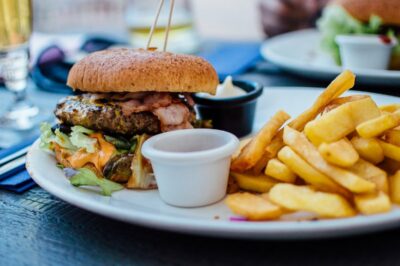

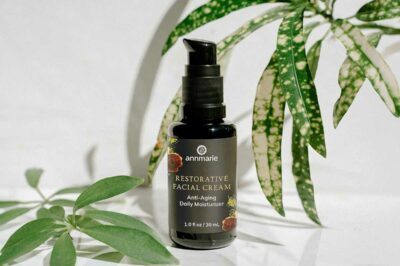

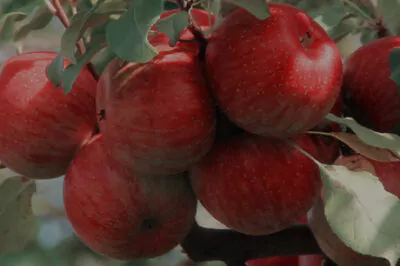
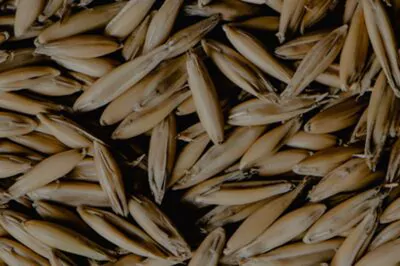
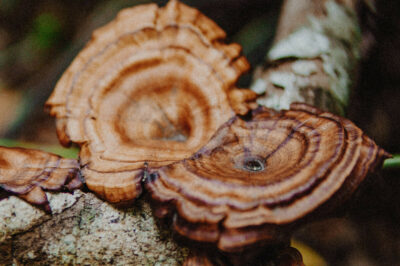
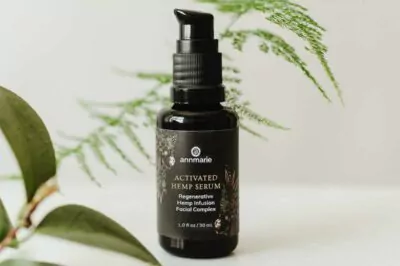
I just had onion dip with crackers which I haven’t had in a very long time and this morning I woke up with my face all irritated. I don’t know if my liver is bad and can’t process food correctly because every time I eat unhealthy, I get little bumps on my face and now more on my forehead which never used to happen. Back then I would only get it on my cheeks. This is something I’m dealing with in my forty’s not when I was younger.
Thank you for your informative article.
I myself believe there’s some connection.
I had too many scars on my face and body and when I started avoiding oily food, they started disappearing.
As this article says, there is some scientific connection too. They have the reason why junk food causes acne. I guess there must be some link between the two.
Nice article though. 🙂